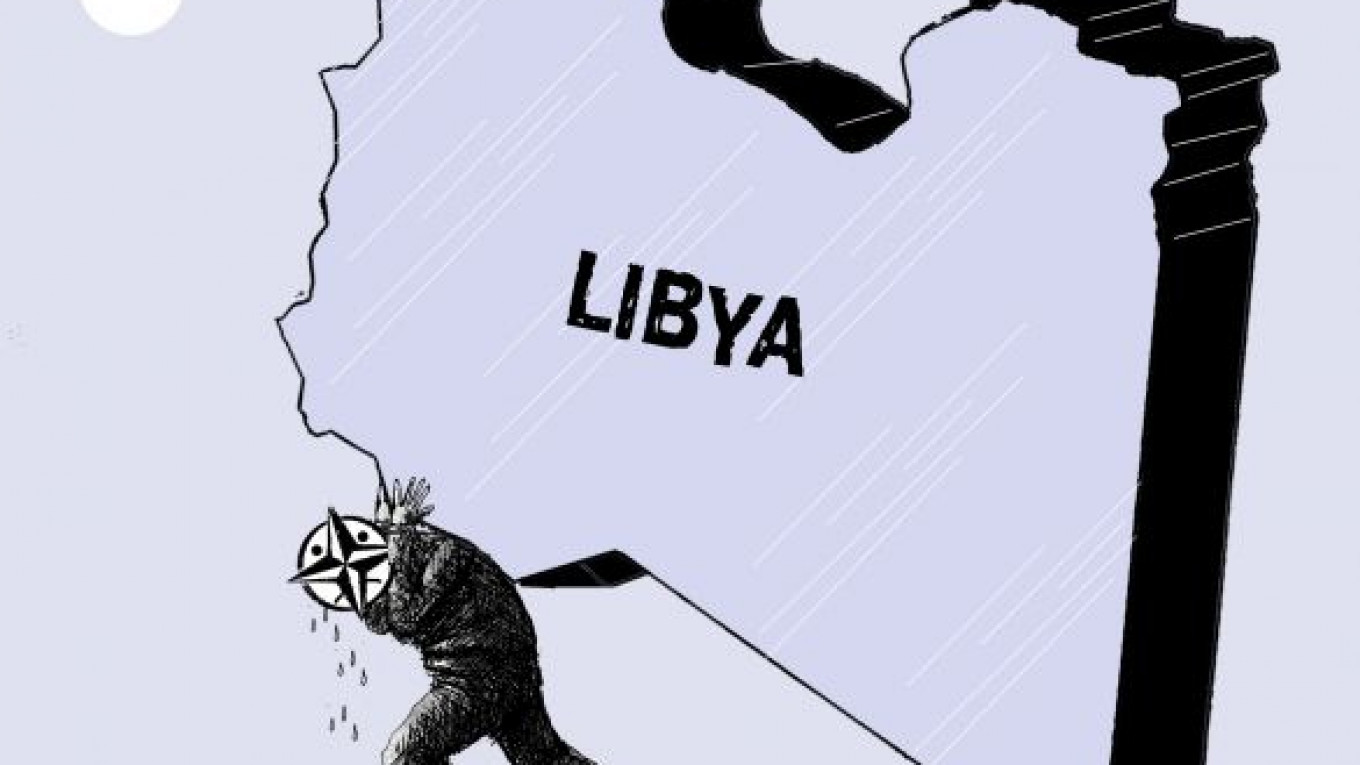The endgame in the Libyan conflict has at last arrived. Much of Libya’s capital is now in insurgent hands with the rebel army entering from all directions. The military impotence of forces loyal to Moammar Gadhafi had been matched by the regime’s growing political disarray. Senior Gadhafi cronies had defected, most recently Deputy Interior Minister Nasser al-Mabrouk Abdullah, who fled to Cairo with nine family members, followed a few days later by Libya’s oil chief, Omran Abukraa. Like Saddam Hussein in 2003, Gadhafi appears to have gone into hiding.
So what now will become of post-Gadhafi Libya? Former U.S. Secretary of State Colin Powell famously admonished President George W. Bush before the Iraq war that, “If you break it, you own it.” Bush, however, shrugged off Powell’s warning, and it was not long before the world watched in horror as it became clear that there was no detailed plan to govern or rebuild post-Hussein Iraq. Instead, the country endured a hideous war of all against all that left uncounted thousands dead.
Are the NATO countries that undertook military intervention in Libya better prepared to restore a broken Libya? Fortunately, one building block that was not available to Bush — a legitimate government to assume authority — is available for Libya.
The National Transitional Council, or NTC, established in February by a rebel coalition forged in Benghazi, is led by Mustafa Abdel-Jalil, who resigned from his position as Gadhafi’s justice minister on Feb. 26 in response to the regime’s violent crackdown on peaceful protests. Will it be able to exercise authority and ensure security for ordinary Libyans, thereby preventing a recurrence of the blood vendettas that shattered Iraq after Hussein’s fall?
As chair of the Japan-Libya Friendship Association, I decided to find out. On Aug. 5, late at night, I visited Abdel-Jalil in Al Bayda, about 200 kilometers from Benghazi. I arrived at the diminutive NTC chairman’s home well after midnight because it was Ramadan, when Muslims fast during the day.
Wearing traditional Libyan garb, he offered me a red cushioned chair while he sat on a simple wooden stool. His modest demeanor stood in stark contrast to Gadhafi, who always sat on a luxurious throne-like sofa when greeting guests.
Abdel-Jalil, 59, had taken some tentative steps to establish the rule of law even under Gadhafi, once famously declaring before Gadhafi himself that “I make my decisions based on the law.” He had served as a judge for many years after studying sharia and civil law at the University of Libya. After working as chief justice in Al Bayda, he was appointed justice minister in 2007.
Some suggest that, given his sharia studies, Abdel-Jalil might be an Islamic fundamentalist. If so, however, all judges in Islamic countries must be fundamentalists because all of them are educated in both civil law and sharia. But how he deals with the Islamic fundamentalists in Benghazi, Al-Bayda, Delna and other areas, who claim that their contribution to victory requires them to have a powerful say in the new order, will go a long way toward determining Libya’s future.
The biggest hit that the NTC’s provisional government has taken since its establishment was the assassination of the rebel military commander Fatah Younis. The killing had spurred fear that tribal warfare would break out, as Younis was part of the powerful Obaida tribe, which lives around Benghazi. The provisional government, by preventing a violent outbreak of internecine tribal violence, showed that it might be able to keep a lid on the types of animosity that savaged Iraq. Maintaining the cooperation of the dominant tribes in each region will be essential to building a stable post-Gadhafi Libya.
Although the NTC is not fully unified, Abdel-Jalil is trying to solidify domestic organization and secure international support. One potential alternative leader is the son of King Idris, who ruled Libya for 18 years before being deposed in a coup in September 1969 by a group of Libyan army officers led by 27-year-old Gadhafi. Another potential leader of the opposition is the son of Omar Mukhtar, the hero who led the resistance movement against Italy long ago. But neither of these ancestral claims to power appear capable of sublimating the will of the people to elect their future leader democratically.
Gadhafi ousted King Idris 42 years ago without bloodshed. Until the stunning rebel advance into Tripoli, the rebels had seemed intent on enacting a kind of desert Götterdämmerung, with his regime going down in flames. That no longer seems likely, and the NTC will now need to begin to actually govern the country. The trials that it has endured thus far have probably left it in a better position to lead a successful democratic transition than most observers realize.
Yuriko Koike, Japan’s former defense minister and national security adviser, is chairman of the executive council of the Liberal Democratic Party. © Project Syndicate
A Message from The Moscow Times:
Dear readers,
We are facing unprecedented challenges. Russia's Prosecutor General's Office has designated The Moscow Times as an "undesirable" organization, criminalizing our work and putting our staff at risk of prosecution. This follows our earlier unjust labeling as a "foreign agent."
These actions are direct attempts to silence independent journalism in Russia. The authorities claim our work "discredits the decisions of the Russian leadership." We see things differently: we strive to provide accurate, unbiased reporting on Russia.
We, the journalists of The Moscow Times, refuse to be silenced. But to continue our work, we need your help.
Your support, no matter how small, makes a world of difference. If you can, please support us monthly starting from just $2. It's quick to set up, and every contribution makes a significant impact.
By supporting The Moscow Times, you're defending open, independent journalism in the face of repression. Thank you for standing with us.
Remind me later.






